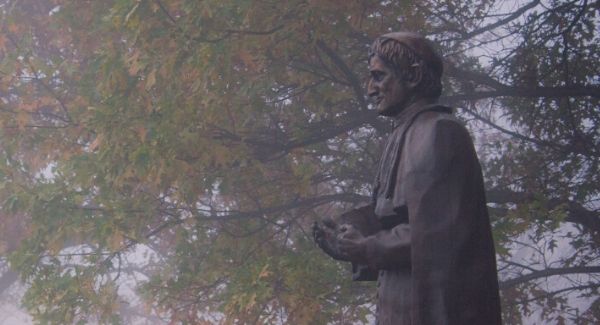The Newman University School of Catholic Studies has introduced a new series of courses based on the “great books” of Catholic and religious history.
Joshua Papsdorf, director of the graduate theology program, said these courses are meant to walk students through the great works that make up the Catholic culture and, by expansion, Western culture.
Newman University opened its School of Catholic Studies in 2019, creating undergraduate and graduate programs in theology, diaconate and pastoral ministry. This also allowed for seminarians of the St. Joseph House of Formation to complete their undergraduate degrees at Newman. The university also partners with a diocese formation program in Little Rock, Arkansas and the Oklahoma City Diocese.
The great books courses are a part of the Littlemore College Preparatory Program, a gap year program designed to provide a rich immersion in Catholic thought and the great works of Western culture.
The courses are open to any student who is interested. However, they were designed with the seminarian students in mind. Each seminarian will take all four classes — two per year — and an additional two philosophy classes that will pair with the great books courses.
Each of the four courses will focus on a particular historical period: Greco-Roman, Medieval, Renaissance and early modern and contemporary.
With just one fixed course each week, the scheduling is flexible, allowing older students who might be working full time or those attending a community college to still participate and engage.
Reading material will include “Don Quixote,” “Henry the IV,” “The Odyssey,” “The Little Flowers of St. Francis” and “Sir Gawain and the Green Knight.” Papsdorf said they will even incorporate some St. John Henry Newman literature as well.
He added that the courses are designed to give Catholic students a better grounding in the faith and to think critically about how their faith relates to other fields.
“Our main goal is to inspire a sense of wonder — to awaken a wonder in the students versus just mastering material and taking tests,” explained Papsdorf. “We want the students to read these great books and to be caught up by the stories. We want them to get so excited in exploring these books that they’ll continue exploring outside of their university experience.”


